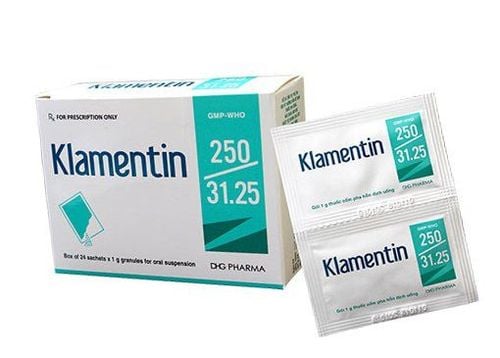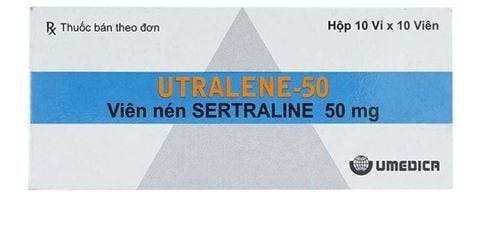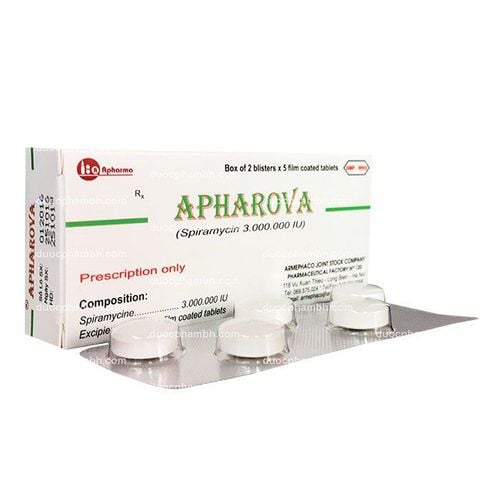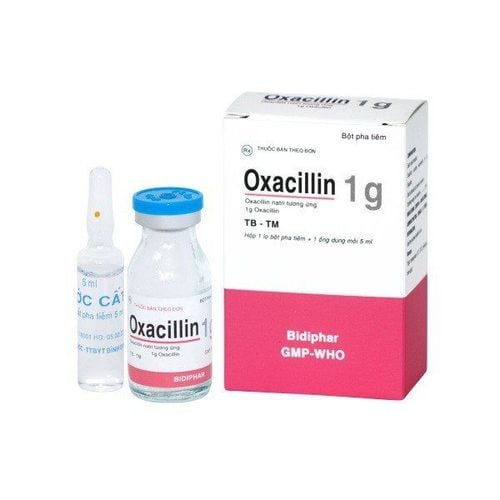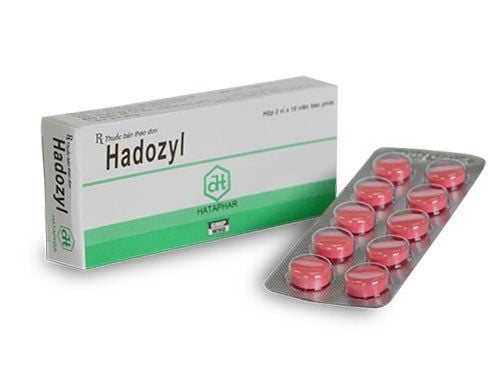This is an automatically translated article.
Grovatab medicine is made in the form of tablets, the main ingredient is Spiramycin. The drug is used in the treatment of certain infections caused by strains of bacteria that are sensitive to the active substance of the drug.1. What are the effects of Grovatab?
1 Grovatab tablet has the main ingredient is Spiramycin 1500000IU content. Spiramycin is a macrolide antibiotic with an antibacterial spectrum similar to erythromycin and clindamycin. This drug has a bacteriostatic effect on bacteria that are dividing cells. At serum concentrations, the drug has a bacteriostatic effect, reaching concentrations in tissues can kill bacteria. The mechanism of action of this drug is to act on the 50S subunit of the bacterial ribosome, preventing the bacteria from synthesizing proteins.
Indications for use of Grovatab:
As the second choice for the treatment of respiratory, skin and genital infections caused by sensitive bacteria; Prophylactic treatment of meningococcal meningitis, in cases where the patient has a contraindication to rifampicin; Prophylaxis of congenital Toxoplasma infection during pregnancy; Chemoprophylaxis of recurrent rheumatoid arthritis in patients allergic to penicillin. Contraindications to the use of Grovatab:
Patients with a history of hypersensitivity to Spiramycin, Erythromycin.
2. Instructions on how to take Grovatab
Usage: The drug is taken orally. Because food in the stomach reduces the bioavailability of Spiramycin, patients should take the drug at least 2 hours before meals or 3 hours after meals. Patients should take Spiramycin for the entire course of treatment.
Dosage: The dose and potency of Spiramycin are expressed in mg or units. 1mg of Spiramycin is equivalent to about 3,000 units. Specific dosages for patients are as follows:
Adults: Use a dose of 1.5 - 3 million international units, 3 times in 24 hours; Children: Take a dose of 150,000 international units/kg body weight/ 24 hours, divided into 3 times; Prophylactic treatment of meningitis caused by strains of Meningococcus bacteria: Adults: Use a dose of 3 million international units, every 12 hours; Children: Dosage: 75,000 international units/kg body weight, every 12 hours for 5 days; Prophylaxis of Toxoplasma infection during pregnancy: Use a dose of 9 million international units/day, divided into several doses for 3 weeks, a booster dose every 2 weeks; Use in combination or alternating with pyrimethamine/sulfonamide regimens may be more effective.
3. Grovatab side effects
Grovatab rarely causes serious side effects. Usually, when using the drug, the patient may experience some side effects such as:
Common: Nausea, vomiting, indigestion, diarrhea; Uncommon: Fatigue, sweating, epistaxis, chest tightness, transient paresthesias, grogginess, dysesthesia, pain, stiffness of muscles and joints, burning sensation, acute colitis , skin rash, urticaria, exanthema; Rare: Anaphylaxis or superinfection due to long-term oral administration of Spiramycin. When experiencing side effects of Grovatab, patients should promptly notify their doctor to receive advice on appropriate management and response.
4. Notes when taking Grovatab
Before and while using Grovatab, patients should note:
Caution when using Spiramycin for patients with liver dysfunction because this drug can cause liver toxicity; Spiramycin is not excreted in an active form for the kidneys, so no dose adjustment is required in patients with renal impairment; Spiramycin crosses the placenta, but the concentration of the drug in the blood of the fetus is lower than in the blood of the mother. Spiramycin does not cause complications when used in pregnant women. However, it is still advisable to use caution when using this drug in this group of subjects, only using it if prescribed by a doctor; Spiramycin is excreted in breast milk in high concentrations, so the mother should stop breastfeeding while using the drug; Caution should be exercised when using Grovatab when driving or operating machinery.
5. Grovatab drug interactions
Regarding drug interactions of Grovatab: Concomitant use of Spiramycin with oral contraceptives will make the contraceptive ineffective.
When using Grovatab, patients should strictly follow the doctor's instructions to ensure the best therapeutic effect for bacterial infections and reduce the risk of dangerous complications.




